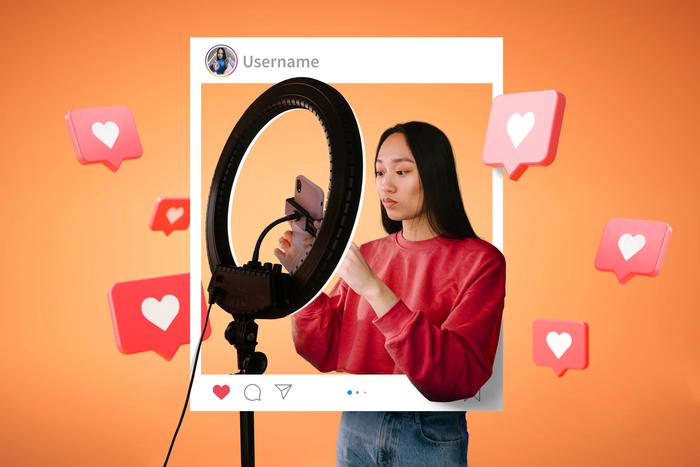
In the sprawling universe of digital marketing, influencer marketing has emerged as a pivotal strategy, harnessing the power of social media personalities to enhance brand visibility, authenticity, and engagement. As we delve deeper into this realm, understanding the intricacies of influencer marketing becomes imperative for brands aiming to thrive in the digital age. A comprehensive digital marketing course can equip marketers with the tools and insights needed to navigate this dynamic landscape effectively.
The concept of influencer marketing isn’t new; it’s rooted in the age-old practice of celebrity endorsements. However, the digital revolution has democratized influence, allowing everyday users with significant online followings to sway public opinion and consumer behavior. This shift from celebrity to “micro” and “nano” influencers has transformed the marketing strategies of businesses across the globe, emphasizing authenticity and relatability over sheer star power.
Read more: 12 Best Strategies for Earning Money Through Digital Marketing
In the era of digital saturation, consumers crave authenticity. They seek genuine connections with brands, making authenticity a critical currency in influencer marketing. The most successful influencers are those who maintain transparency with their audience, endorsing products or services that align with their brand and values. For businesses, partnering with influencers who genuinely resonate with their brand ethos can lead to more authentic, impactful marketing campaigns.
1. Identifying the Right Influencers:
The first step in leveraging influencer marketing is identifying influencers who align with your brand’s identity and target audience. A strategic approach involves analyzing an influencer’s content, audience demographics, engagement rates, and alignment with your brand values.
2. Fostering Genuine Partnerships:
Effective influencer marketing is rooted in genuine partnerships. It’s about creating a symbiotic relationship where the brand and the influencer benefit and grow. Brands should aim to build long-term relationships with influencers, rather than one-off transactions, to cultivate authenticity and consistency.
3. Measuring Impact:
The true measure of an influencer marketing campaign’s success goes beyond likes and comments. Advanced metrics such as engagement rate, conversion rate, and ROI provide a clearer picture of the campaign’s effectiveness. Digital marketing courses often emphasize the importance of data-driven strategies in evaluating the success of influencer collaborations.

The Role of Digital Marketing Education
As influencer marketing evolves, staying abreast of the latest trends, tools, and strategies is crucial for marketers. Herein lies the importance of a comprehensive digital marketing course. Such courses offer:
Up-to-date Industry Knowledge: They provide insights into the latest influencer marketing trends, platforms, and tools, preparing marketers to navigate the digital landscape effectively.
Strategic Thinking: Beyond tactics, these courses cultivate a strategic mindset, enabling marketers to plan and execute influencer marketing campaigns that align with broader business goals.
Ethical Considerations: With concerns around transparency and authenticity in influencer marketing, these courses also cover ethical considerations, guiding marketers on best practices for transparent and responsible influencer collaborations.
While influencer marketing offers immense potential, it has its challenges. The saturation of influencer marketing has raised concerns about authenticity, with consumers growing skeptical of influencer endorsements. Moreover, the regulatory landscape is evolving, with increased scrutiny around disclosure and transparency. Navigating these challenges requires a nuanced understanding of influencer marketing dynamics—a competency that a robust digital marketing course can provide.
Also Read: Agile Marketing Adapting Strategies in Real Time for Optimal Results
As we look toward the future, influencer marketing is set to become more integrated, personalized, and technologically sophisticated. We’ll likely see a rise in the use of AI for influencer identification and matchmaking, the growth of influencer-led content creation, and increased emphasis on video and live-streaming platforms. In this ever-evolving landscape, continuous learning and adaptation are key to harnessing the full potential of influencer marketing.
Conclusion
Influencer marketing stands as a testament to the transformative power of authenticity and influence in the digital age. For brands and marketers aiming to leverage this dynamic strategy, investing in a comprehensive digital marketing course is not just beneficial; it’s essential. Such education equips professionals with the knowledge, skills, and ethical grounding needed to navigate the complexities of influencer marketing, ensuring that their strategies not only resonate with audiences but also drive meaningful engagement and growth in an increasingly digital world.
In the realm of digital marketing, where authenticity and influence reign supreme, embracing influencer marketing with strategic insight and ethical consideration is the key to unlocking unprecedented success.
Recent Posts
Categories
Our Address:
2nd Floor, H-187, Block – H, Sector 63, Noida, Uttar Pradesh 201301, India
Phone: +91-8882811078
Email: hello@digidiracademy.com
©2024. DigiDir Academy, Digital Marketing Training in Noida. All Rights Reserved.
You can see how this popup was set up in our step-by-step guide: https://wppopupmaker.com/guides/auto-opening-announcement-popups/